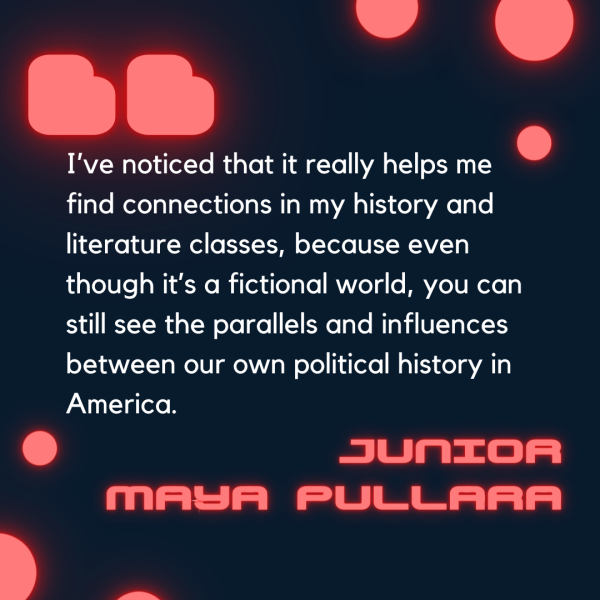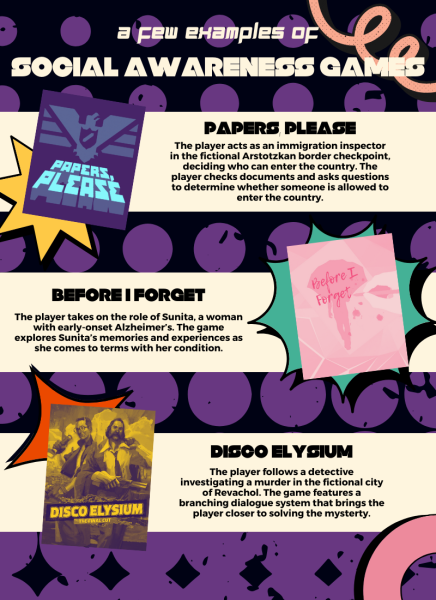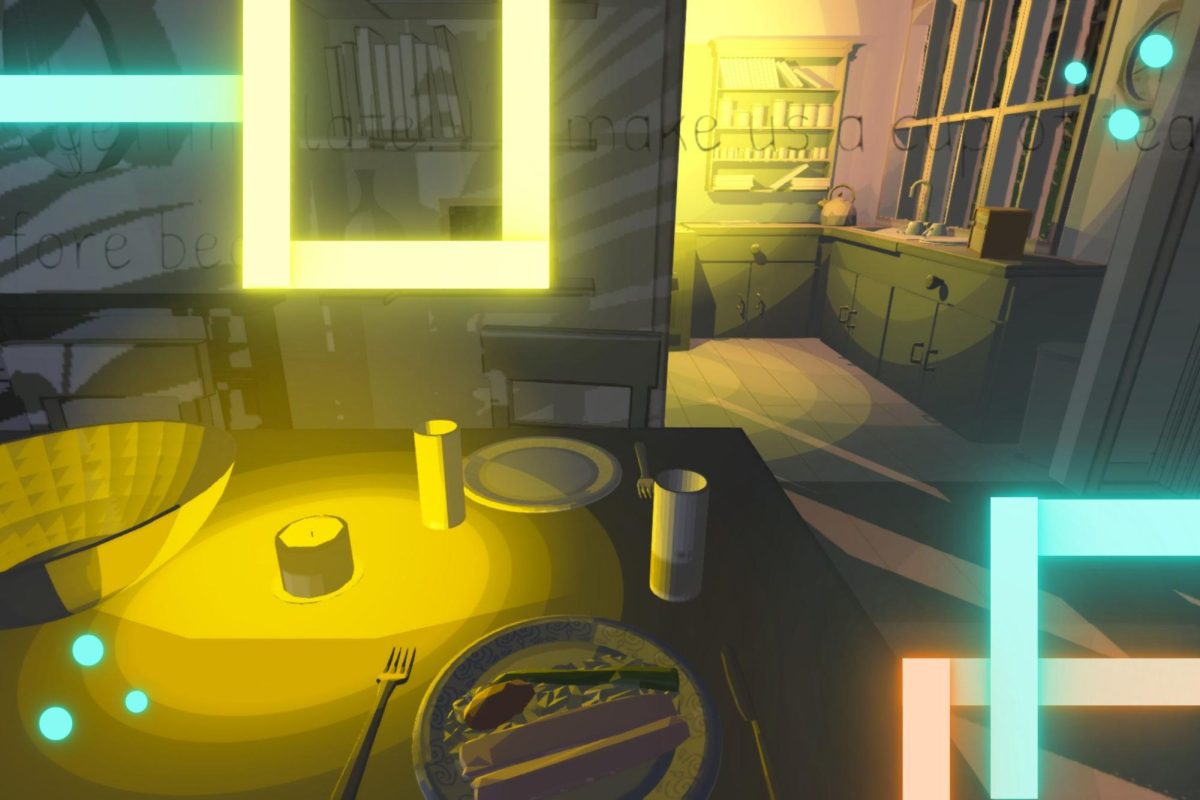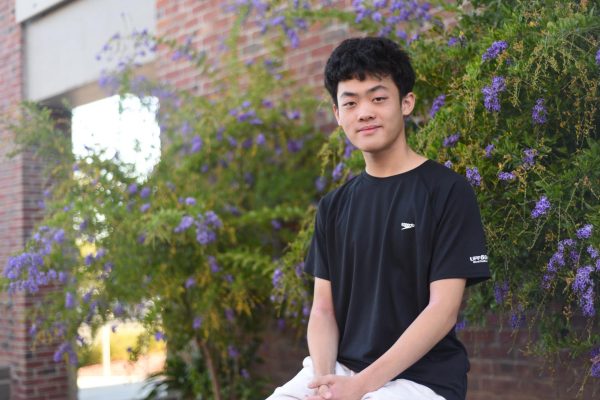Last year, senior and Technovation Club president Nithya Appannagaari embarked on a project with her friend to develop an app for the global Technovation competition, the goal of which was to solve a community problem. Together, they created Music.com, a music therapy app featuring a suite of tools — from heartbeat detection for personalized music experiences to an interactive piano game — all designed to support neurodivergent individuals.
“I have people in my family who deal with heightened anxiety due to their neurodivergence,” Appannagaari said. “My friend is part of Ohana Club, a club that works with special education students, and has also realized the importance behind ensuring that everyone is able to function in school at the same level without having to feel that heightened anxiety, especially because there aren’t a lot of support systems in place that help them de-stress.”
Interactive media, including video games, have increasingly become a platform for raising social awareness and tackling a broad spectrum of social issues, from mental health to environmental sustainability. Junior Maya Pullara has explored numerous games that touch on these themes. Among them is “Papers, Please,” which explores the moral complexities of border control, and “Disco Elysium,” a game recommended by her sister where one plays as an alcoholic who has lost his memory. She says that playing these games has heightened her awareness of social challenges, especially in the context of school.

“I’ve noticed that it really helps me find connections in my history and literature classes, because even though it’s a fictional world, you can still see the parallels and influences between our own political history in America,” Pullara said. “‘Disco Elysium’ is written with such poeticism. There’s one line at the very start of the game — I think about it a lot while we’re reading a book about racism from Honors American Literature — it has to do with the existential dread of being trapped in your circumstances. Every time I read that book, I feel that kind of feeling.”
Connections to real-world issues are especially present in “Before I Forget,” a video game detailing the experiences of Sunita, an older woman living with dementia. Developers Claire Morwood and Chella Ramanan began working on the game after meeting at a game jam, an event where participants make a video game in a limited amount of time. Morwood says that creating the game required consulting films and books as well as having medical professionals from the organization Gaming the Mind test game builds to accurately portray dementia.
“The example the psychologist commented on was when we had a key that the character could pick up,” Morwood said. “Originally, we had it such that she couldn’t remember the word ‘key,’ but she could remember it’s this golden metal object. The feedback we got was that it’d be more likely she would remember its function. So, she would say, ‘Oh, it’s that unlocking object.’ It’s details like that that we wouldn’t really have known or have thought to include otherwise.”
As a result, “Before I Forget” is designed to expose players to various aspects of dementia through a tailored storyline. In addition to post-it notes lining the walls, jump cuts and a confused voiceover, Morwood explains there is a loop where the player tries to locate the bathroom but is teleported back to the wardrobe to convey the experience of feeling lost.
Contrastingly, in “Disco Elysium,” the player’s actions and decisions can lead to different endings. Pullara emphasizes that this feature lets players employ critical thinking to approach various social issues. She adds that “Disco Elysium” shows players how to overcome societal challenges, citing an example where her character’s companion Kim Kitsuragi encounters a microaggression and acts upon it.
“There’s one interaction where someone says to Kim, ‘Welcome to the country,’ and depending on how you respond, it can become an interaction of realizing this guy was saying that as a racist thing to this person when they’ve lived there their whole life,” Pullara said. “What happens is Kim stands up to that person. But that moment to me and a lot of fans is something that is very definitive of understanding the struggles of someone who looks different, but isn’t.”

Appannagaari agrees that video games have some educational benefits in teaching about social issues, especially since digital devices can target a wider audience. However, although social awareness through video games is more accessible, she believes it is not the most effective method.
“Video games do increase the accessibility of learning about social issues, but on the other hand, I feel that it might make it seem less real because it’s presented in a game viewpoint or app viewpoint,” Appannagaari said. “It can make people more disconnected from reality versus when you’re holding the physical book or you’re reading about it on the news, you can truly see that this is what is happening in real life and this is something that I should work on.”
To address concerns similar to those outlined by Appannagaari, Morwood and Ramanan primarily focused on developing the protagonist in “Before I Forget” to create the most lifelike experience. To them, this was an opportunity to go beyond the boundaries of a more traditional video game hero and represent a unique issue. By using video games as a medium to tell a detailed account of Sunita’s experience, they found this also led to awareness on broader social issues, impacting players around the world.
“It is a social issue, but first and foremost, it’s a story about a character that people can relate to,” Ramanan said. “It’s Sunita’s story that’s interesting and universal and all those things are just layers that you add on top of it. We didn’t set out to make a social game with a social message to it. It was always just about telling the story or creating the experience that you want to create because it means something to you and you put it out in the world in hopes it resonates with other people.”













